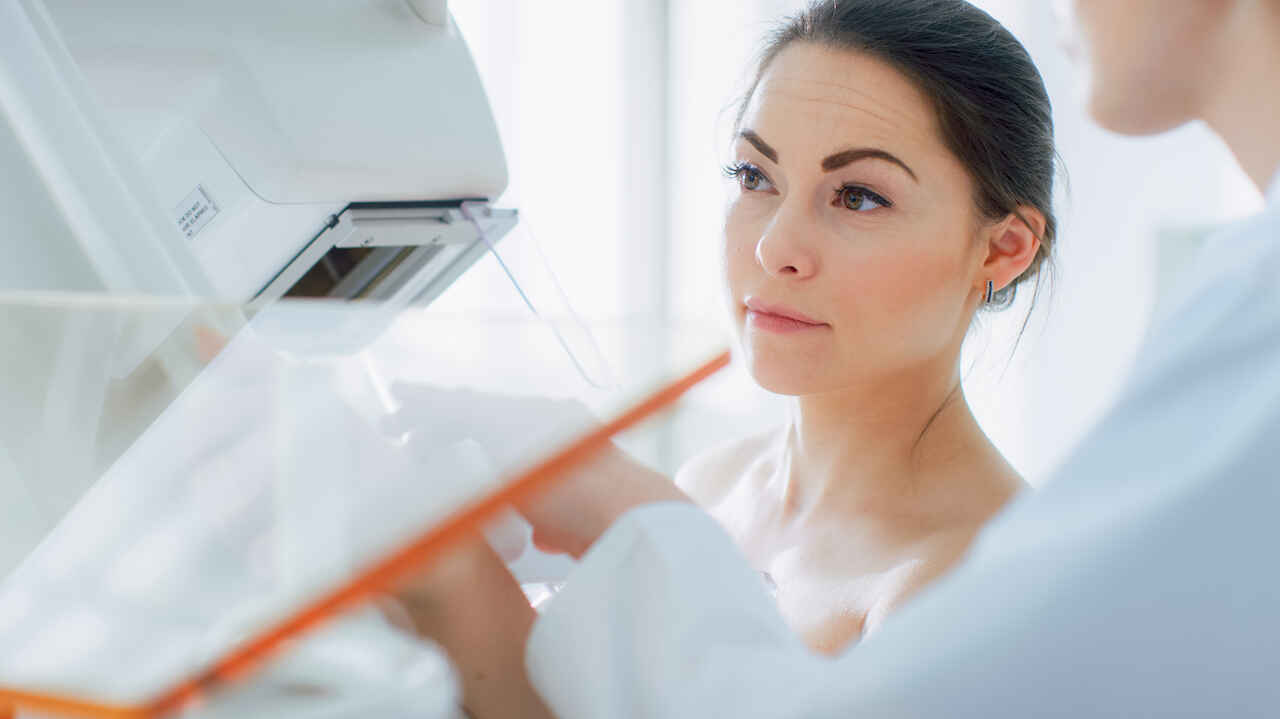
Here’s why routine screenings like mammograms shouldn’t be postponed any longer.
If you’ve been putting off routine health appointments and screenings for most of this year, you definitely aren’t the only one. Many health care facilities had to close and cancel appointments in the early phase of the pandemic. Even as medical offices reopened, people have been hesitant to reschedule appointments, concerned about contracting the virus or simply not willing to venture out for something viewed as routine
Even without a global pandemic going on, it’s easy to put off health appointments that don’t seem urgent. We get busy, and when that happens, things like mammograms and other routine screenings get pushed off the calendar. Sometimes, we simply can’t be bothered with doing something that doesn’t seem to be needed at that exact time, but it is a mistake to delay or skip routine screenings like mammograms.
Mammograms can detect cancer early: Finding cancer when it’s still small, before it has spread, allows for more treatment options and a better chance of recovery. The images generated through mammography can often detect lumps three or more years before they can be felt during a breast exam. Mammography can’t reduce your risk of developing breast cancer, but it can improve the outcome by helping to detect the cancer at an early stage.
Mammograms do not find every cancer. Estimates vary from 8-20% of breast cancers are not found by a screening mammogram. So, it is important that in addition to a mammogram you have an annual clinical breast exam. However, women who have yearly mammograms are more likely for their cancer to be found on mammogram.
At least 80% of breast cancer diagnoses are in women over 50, and 75-80% of breast cancers occur in women with no family history of breast cancer. The American Society of Breast Surgeons recommends screening mammograms begin at 40 and continue yearly until life expectancy is less than 10 years.
If you have a family history of breast cancer – a first-degree relative (parent, sibling or child), or two or more other relatives – it may be suggested that you begin mammography earlier.
The Federal Affordable Care Act has deemed mammograms as a preventive procedure that must be covered by insurance at no charge to the patient (no copayments, coinsurance or deductibles). If you don’t have health insurance, there are a number of federal and state programs that offer free or low-cost mammograms.
If you missed your mammogram, it’s time to call and reschedule your appointment. Across the country, health centers and mammography clinics are taking precautions to make sure visits are safe, including staggering appointments, testing staff, screening patients for COVID-19 and increasing the cleaning of equipment and other surfaces within facilities. The risk of contracting COVID-19 from getting a mammogram is low compared to the benefits this cancer screening offers.
Copyright 2020 © Baldwin Publishing, Inc. All rights reserved.
Health eCooking® is a registered trademark of Baldwin Publishing, Inc. Cook eKitchen™ is a designated trademark of Baldwin Publishing, Inc. Any duplication or distribution of the information contained herein without the express approval of Baldwin Publishing, Inc. is strictly prohibited.
Date Last Reviewed: August 12, 2020
Editorial Review: Andrea Cohen, Editorial Director, Baldwin Publishing, Inc. Contact Editor
Medical Review: Perry Pitkow, MD
Learn more about Baldwin Publishing Inc. editorial policy, privacy policy, ADA compliance and sponsorship policy.
No information provided by Baldwin Publishing, Inc. in any article is a substitute for medical advice or treatment for any medical condition. Baldwin Publishing, Inc. strongly suggests that you use this information in consultation with your doctor or other health professional. Use or viewing of any Baldwin Publishing, Inc. article signifies your understanding and agreement to the disclaimer and acceptance of these terms of use.